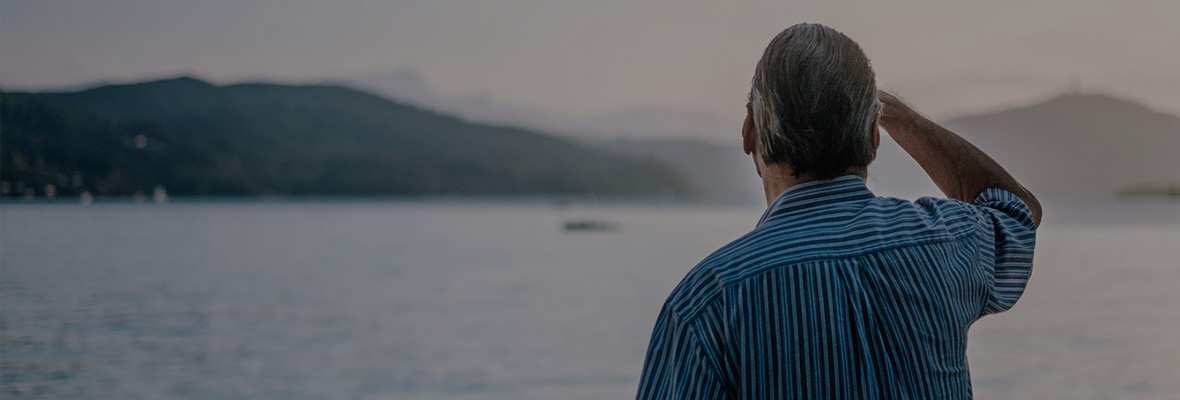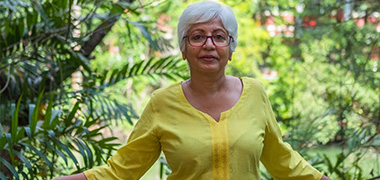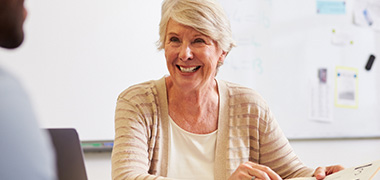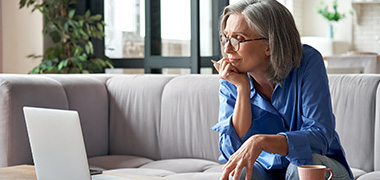Exercise tips for seniors
Written by Melinda Irvine
29th August 2019
As we get older, it becomes so easy to fall into the trap of sitting for long periods of time. Reading a great book, or watching a movie from a comfy chair, taking a long drive in the RV, or just sitting while having coffee with friends — all these moments can quickly add up to a significant part of your day. In this article we’ll share some critical reasons for getting up, and off the couch — and onto your feet. Plus we’ll share our best tips for immediately increasing your activity levels.
How much exercise do I need?
For optimum health, everyone (including seniors) need at least 30 minutes of physical activity of moderate intensity every day. Moderate intensity means your heart rate increases, and your cardiovascular system has to work a little harder — and your lungs, heart, muscles, motor skills get stronger because of it.
It’s important to remember, that doing 30 minutes of exercise and then spending the other 23.5 hours of your day either sitting, sleeping, or in the car isn’t optimal. Making physical activity more prevalent in your entire day — not just one 30 minute block — is the key to greater health and overall wellbeing.
Healthy heart
The National Heart Foundation of Australia report that adults who sit less through the day have a lower risk of early death — especially from heart disease and other cardiovascular disorders (CVD).
Heart disease is directly linked to physical inactivity and sedentary behaviour. And the trouble with a sedentary lifestyle is it tends to sneak up on you. Especially if you’ve just retired from a role that required long hours and a lot of work.
3 quick tips for getting more exercise to support a healthy heart
If you’ve been sitting a lot lately and need some inspiration why not try:
- Taking the stairs instead of the escalator next time you’re at the shopping centre.
- Walking through the local park or botanical gardens — or just getting out in your own garden (no sitting though).
- Finding ways to spend less time sitting each day — maybe stand and fold the clothes while watching a movie instead of sitting down.
Improved balance
Balance problems are an issue for older Australians — falls are the leading cause of hospitalisation and injury-related deaths of people aged over 65. But according to Nutrition Australia, regular exercise can rapidly improve your balance and coordination.
Simply sitting less (and walking more) reduces the risk of falling because your feet and legs are more accustomed to being in a ‘controlled fatigue state’. Targeted exercise programs (like pilates, yoga, and fitball stretching) can increase core stability and neuromuscular (nervous control) function. Both essential for balance and motor skills.
3 quick tips for getting more exercise to support balance
Take affirmative action and improve your balance by:
- Taking a dance class or boogie to a YouTube video.
- Learn how to use a fitball for stretching, and use it around the house.
- Join the local gym and request a trainer who prefers working with seniors.
Great mental health
Exercise releases feel-good chemicals like endorphins and serotonin into your body, brain, and bloodstream. When you’re out and about ,your blood starts pumping and your mood improves.
Health Direct Australia advise that just 30 minutes of moderate exercise everyday will increase the connections between your nerve cells and your brain, improve your memory, and help you think more clearly. Better mental health, better life.
3 Quick tips for getting more exercise to support mental health
You don’t need to spend a fortune, just get out of the house. Why not try:
- Joining a walking group or just creating your own with a friend.
- Walking to a friend’s for coffee, then walking home.
- Driving the car to the next suburb or town — parking — then walking a path or trail you’ve never tried before.







